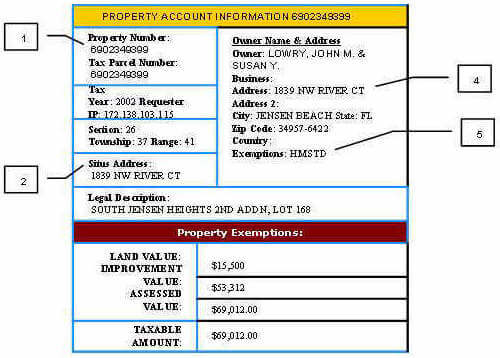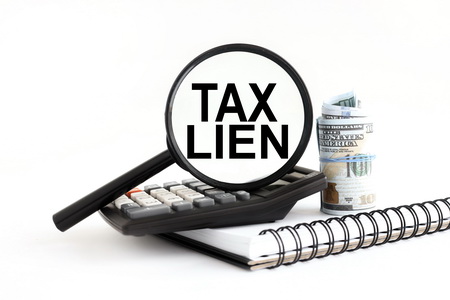All Categories
Featured
Table of Contents
Tax obligation lien investing can offer your profile exposure to property all without having to actually possess building. Specialists, nonetheless, say the process is complicated and warn that amateur capitalists can easily get burned. Below's whatever you need to learn about purchasing a tax lien certificate, consisting of just how it functions and the dangers entailed.
The notification typically comes prior to harsher actions, such as a tax levy, where the Internal Revenue Service (IRS) or neighborhood or community federal governments can actually take a person's residential property to recoup the financial debt. A tax obligation lien certification is created when a building proprietor has stopped working to pay their taxes and the neighborhood federal government issues a tax lien.
Tax obligation lien certificates are generally auctioned off to financiers looking to profit. To recuperate the overdue tax dollars, municipalities can then market the tax lien certificate to private investors, that care for the tax obligation bill in exchange for the right to collect that cash, plus interest, from the property owners when they ultimately pay back their equilibrium.
Investing In Tax Liens Certificates
enable the transfer or task of overdue property tax liens to the economic sector, according to the National Tax Obligation Lien Association, a nonprofit that stands for governments, institutional tax lien investors and servicers. Below's what the process resembles. Tax lien capitalists need to bid for the certification in a public auction, and how that procedure works depends upon the particular community.
Contact tax obligation authorities in your area to ask exactly how those overdue tax obligations are collected. Auctions can be on-line or in individual. In some cases winning proposals go to the investor going to pay the most affordable rate of interest, in a technique called "bidding down the rate of interest." The community develops an optimum price, and the bidder supplying the most affordable rate of interest below that maximum wins the public auction.
Other winning proposals go to those who pay the greatest money quantity, or costs, over the lien quantity. What takes place next for capitalists isn't something that occurs on a stock market. The winning bidder needs to pay the whole tax obligation bill, consisting of the overdue debt, interest and charges. The capitalist has to wait till the residential or commercial property owners pay back their entire balance unless they don't.
While some investors can be rewarded, others could be caught in the crossfire of challenging policies and loopholes, which in the worst of circumstances can lead to large losses. From a simple profit perspective, the majority of financiers make their cash based on the tax lien's rate of interest. Rate of interest differ and rely on the jurisdiction or the state.
Profits, nonetheless, don't constantly amount to returns that high during the bidding process. Ultimately, a lot of tax obligation liens purchased at auction are cost rates in between 3 percent and 7 percent country wide, according to Brad Westover, executive supervisor of the National Tax Lien Organization. Prior to retiring, Richard Rampell, previously the primary exec of Rampell & Rampell, an accountancy firm in Hand Beach, Florida, experienced this direct.
Tax Lien Redemption Period
After that large institutional financiers, consisting of banks, hedge funds and pension plan funds, went after those greater returns in public auctions around the nation. The larger investors helped bid down passion rates, so Rampell's team wasn't making considerable cash anymore on liens.
Yet that seldom happens: The taxes are normally paid prior to the redemption day. Liens likewise are very first eligible settlement, even before mortgages. Even so, tax liens have an expiration day, and a lienholder's right to confiscate on the property or to accumulate their financial investment runs out at the exact same time as the lien.
Individual investors who are taking into consideration investments in tax liens should, over all, do their homework. Professionals suggest avoiding residential or commercial properties with environmental damage, such as one where a gas terminal dumped harmful material.
Tax Lien Investing Strategies
"You should really recognize what you're purchasing," says Richard Zimmerman, a partner at Berdon LLP, a bookkeeping firm in New York City. "Be mindful of what the home is, the neighborhood and worths, so you don't get a lien that you will not be able to collect." Would-be capitalists must likewise take a look at the residential or commercial property and all liens versus it, along with recent tax sales and price of similar homes.
Maintain in mind that the info you find can typically be obsoleted. "People get a checklist of properties and do their due persistance weeks before a sale," Musa claims. "Fifty percent the buildings on the checklist may be gone because the taxes make money. You're losing your time. The closer to the date you do your due diligence, the better.
Tax Lien Investing Pros And Cons

Westover claims 80 percent of tax obligation lien certifications are offered to participants of the NTLA, and the firm can commonly pair up NTLA participants with the right institutional investors. That could make managing the process easier, particularly for a beginner. While tax obligation lien investments can offer a charitable return, be aware of the small print, details and guidelines.
"However it's made complex. You need to understand the details." Bankrate's contributed to an upgrade of this tale.
Real estate tax liens are an investment niche that is ignored by a lot of investors. Getting tax liens can be a lucrative though relatively danger for those who are experienced about real estate. When individuals or companies fall short to pay their real estate tax, the towns or various other government bodies that are owed those tax obligations place liens versus the properties.
Tax Ease Lien Investments
These cases on collateral are likewise traded among financiers that wish to generate above-average returns. Via this procedure, the district obtains its taxes and the investor gets the right to gather the amount due plus passion from the borrower. The procedure hardly ever ends with the investor confiscating possession of the residential or commercial property.
If you need to foreclose, there might be other liens against the property that keep you from taking possession. You can also spend indirectly through residential property lien funds.
It properly ties up the residential or commercial property and avoids its sale till the owner pays the taxes owed or the property is taken by the creditor. As an example, when a landowner or house owner stops working to pay the tax obligations on their home, the city or county in which the building is located has the authority to place a lien on the building.
Home with a lien affixed to it can not be marketed or refinanced up until the tax obligations are paid and the lien is removed. When a lien is released, a tax obligation lien certification is produced by the community that reflects the quantity owed on the residential property plus any rate of interest or charges due.

It's estimated that an additional $328 billion of residential property taxes was assessed across the U.S. in 2021. It's hard to assess across the country property tax lien numbers.
Latest Posts
List Of Properties With Delinquent Taxes
What Is A Delinquent Tax Sale
How Do Tax Foreclosure Sales Work